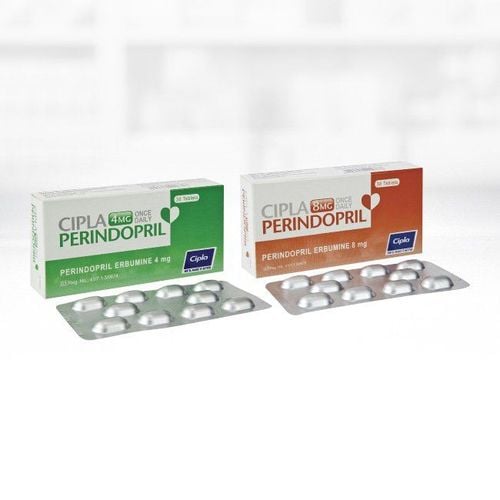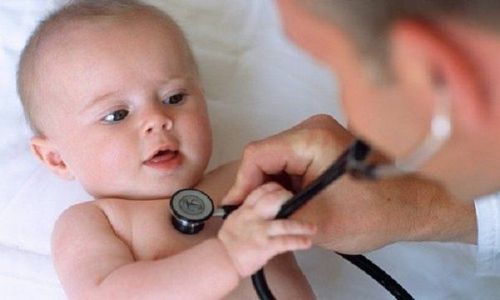This is an automatically translated article.
The article is professionally consulted by Doctor Nguyen Van Duong - Cardiovascular Center - Vinmec Central Park International General Hospital.
Atrial septal defect (ASD) is one of the most common congenital atrial defects, which occurs when the heart has a hole in the septum between the two atria. If it is a small hole, it may not affect the body and is only found incidentally during examination for other reasons. However, when a large septal hole is left untreated, it can damage the heart and lungs in the long run.
1. Symptoms of atrial septal defect
Many babies are born with an atrial septal defect but go undetected because there are no signs or symptoms of heart or lung disease. In adults, signs or symptoms may begin around age 30, but in some cases, signs and symptoms may not appear until later in life.Symptoms of an atrial septal defect may include:
Shortness of breath, especially with exertion Fatigue Swelling of legs, feet or abdomen Palpitations or irregular heartbeat Stroke Heart murmur Need to contact doctor if you or your child have any of the following signs or symptoms:
Shortness of breath Rapid fatigue, especially after activity Swelling of the legs, feet, or abdomen Palpitations or decreased heart rate This may be is a symptom of heart failure or another complication of a congenital heart defect.

2. Causes and risk factors leading to atrial septal defect
Doctors still don't know what causes an atrial septal defect, but congenital heart defects often run in families and sometimes occur when people have other genetic conditions, such as Down syndrome. .The risk of congenital heart disease is higher for children whose parents or both have congenital heart disease. Even with treatment, people with a history of congenital heart defects need to consider before getting married or pregnant. Some medications may need to be stopped or adjusted before pregnancy because these drugs can cause serious problems with the developing baby.
Doctors also believe that some maternal diseases can put the fetus at an increased risk of birth defects, including:
Rubella is very dangerous for pregnant women, especially in the first 3 months of pregnancy. Pregnancy is the period when the organs of the fetus are formed. Viruses can cross the placental barrier, enter the fetus and affect the development of the fetus. About half of the cases have no typical clinical signs, so many pregnant women with Rubella go undetected, causing many serious health consequences for the mother and the fetus. Using drugs, tobacco, alcohol, or being exposed to certain harmful chemicals during pregnancy can harm a developing baby. Mothers with diabetes or lupus may be more likely to give birth to a baby with a congenital heart defect. Obese mother. Phenylketonuria (Phenylketonuria). If the mother has phenylketonuria and does not follow a meal plan specifically for phenylketonuria, there is an increased chance of having a baby with a heart defect.
3. Complications of atrial defect
A small atrial septal defect may not cause any problems, or the small hole between the atrial septum usually closes during fetal life. However, larger defects can cause serious problems for the child later in life, including:Right heart failure Heart rhythm disturbances Increased risk of stroke Shortening life expectancy Serious complications are less common More may include:
Pulmonary hypertension . If a large atrial septal defect is left untreated, increased blood flow to your lungs will increase pressure in the pulmonary arteries (pulmonary hypertension). Eisenmenger syndrome. Pulmonary hypertension can cause permanent lung damage. This complication, known as Eisenmenger syndrome, usually develops over many years and occurs uncommonly in people with large atrial septal defects.

4. Prevention of Atrial Defects
Currently there is no way to prevent atrial septal defect. If you are planning a pregnancy, schedule regular antenatal visits for:
Immunity testing for rubella. If you do not yet have antibodies or are weak against rubella, your doctor will recommend that you get the measles vaccine. You need to carefully monitor the health of your unborn baby throughout your pregnancy, and your doctor may also recommend adjusting or stopping certain medications before you become pregnant. If you have a family history of congenital heart defects or other genetic disorders, consider talking with a geneticist to determine your baby's risk of having a congenital heart defect. Currently, all Vinmec International Hospitals close the ASD by percutaneous intervention with a methodical and strict procedure, ensuring safety, accuracy and effective treatment. high.
Vinmec with advanced equipment and a team of experienced and well-trained doctors and nurses, professional and dedicated patient care services will help patients have the most secure experience during surgery. Minimally invasive open heart here.
Dr. Nguyen Van Duong has many years of experience in the diagnosis and treatment of internal cardiovascular diseases and cardiovascular interventions; Perform other noninvasive functional investigations in the diagnosis and treatment of cardiovascular diseases. Currently working as a treating doctor at Cardiovascular Center, Vinmec Central Park Hospital since August 2017
Please dial HOTLINE for more information or register for an appointment HERE. Download MyVinmec app to make appointments faster and to manage your bookings easily.
Reference source: Mayoclinic.orgMORE:
Closing of the ASD with minimally invasive open-heart surgery 3 methods of treating atrial septal defects Patching the atrial septal defect in children














